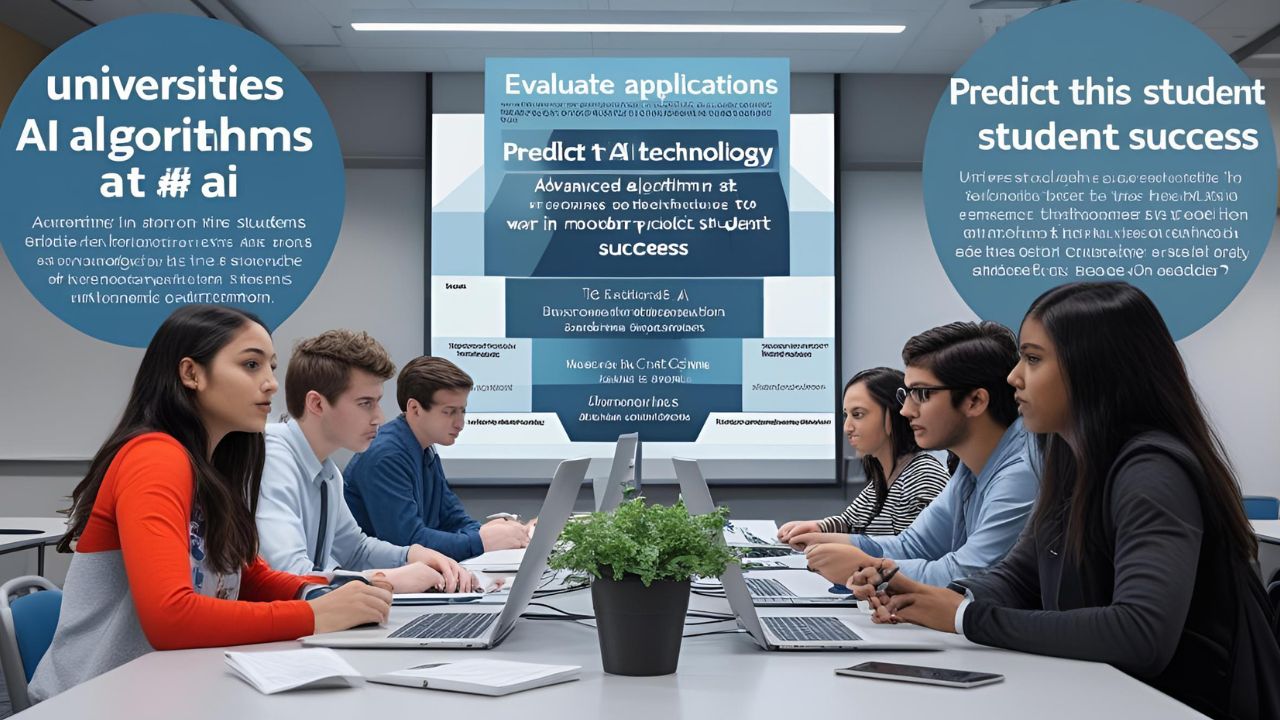How Universities Are Using AI to Evaluate Applications and Predict Student Success
The Rise of Artificial Intelligence in Higher Education
In the digital age, artificial intelligence (AI) is revolutionizing every aspect of our lives—including how universities operate and make critical decisions. Universities worldwide are leveraging AI technologies to streamline application evaluation, enhance admissions strategies, and predict academic success, including the use of AI to Evaluate Applications, helping to shape the future of education.
With the increasing integration of technology, many institutions now utilize AI to Evaluate Applications, addressing the need for more efficient admissions processes.
This shift towards automation means that AI to Evaluate Applications is becoming a standard practice in many universities.
Implementing AI to Evaluate Applications allows universities to focus more on holistic assessments rather than solely on traditional metrics.
AI-Powered Application Evaluation: Transforming Admissions Processes
Traditional college admissions processes have long relied on manual review methods. However, these are time-consuming, prone to human bias, and often inconsistent. AI is now automating and refining how universities assess student applications, enabling institutions to make more data-driven and equitable decisions.
Automated Document Screening
Universities are now employing Natural Language Processing (NLP) and machine learning (ML) to quickly parse thousands of application documents such as essays, recommendation letters, and resumes. These tools assess:
- Grammar and structure
- Thematic consistency
- Tone and intent
- Relevance of content
By quantifying subjective components of applications, AI helps admission teams gain objective insights into applicants’ capabilities and fit for a given academic program.
Behavioral and Personality Analysis
AI systems analyze digital footprints and essay content to evaluate personality traits. Some universities use psycholinguistic models to determine traits like perseverance, leadership potential, and emotional intelligence—qualities traditionally overlooked by GPA or test scores alone.
AI to Evaluate Applications is not just about speed; it also helps universities enhance the quality of candidate evaluation.
Furthermore, AI to Evaluate Applications aids in identifying key personality traits that are indicative of future success.
Predictive Analytics: Identifying Students Likely to Succeed
Beyond evaluating applications, universities are also utilizing predictive analytics to forecast a student’s academic performance, engagement level, and likelihood of retention or dropout.
By utilizing AI to Evaluate Applications, institutions can better predict student success and tailor their support services accordingly.
With AI to Evaluate Applications, universities can analyze historical data and continually refine their admission criteria.
Modeling Student Success with Historical Data
AI platforms use historical admission and academic records to build models that predict how new students will perform. These models account for:
- High school performance metrics
- Standardized test scores
- Socioeconomic factors
- Geographic trends
- Extracurricular involvement
AI identifies patterns that humans may miss, such as how certain extracurriculars correlate with success in specific majors or how students from particular backgrounds perform in high-stress academic environments.
Early Warning Systems for At-Risk Students
AI doesn’t stop at admissions. Once students are enrolled, AI-driven platforms track their academic performance, attendance, LMS activity, and more. These systems flag students at risk of academic failure or disengagement, allowing timely intervention through:
As a result, AI to Evaluate Applications enhances the overall admissions strategy and aligns it with institutional goals.
- Personalized academic coaching
- Mental health resources
- Tailored tutoring programs
- Adjusted coursework pacing
Universities like Georgia State University have already seen dramatic improvements in retention rates by implementing such technologies.
Ethical Considerations and Bias Mitigation in AI Admissions
The integration of AI in admissions has sparked debates around algorithmic bias, fairness, and transparency. Universities must ensure that AI systems are not perpetuating historical biases—especially those based on race, gender, or socioeconomic background.
Auditing Algorithms for Fairness
Leading universities conduct regular algorithm audits to monitor for bias. They employ techniques like:
- Bias-aware machine learning
- Explainable AI (XAI)
- Diverse training data sets
Applying AI to Evaluate Applications not only improves the efficiency of the process but also ensures a more equitable selection.
These ensure that AI tools remain ethical, transparent, and inclusive. Moreover, many institutions now maintain human oversight to validate AI recommendations before making final decisions.
Importantly, schools that utilize AI to Evaluate Applications must also prioritize fairness and transparency in their algorithms.
Data Privacy and Consent
With the rise of AI, data privacy becomes a paramount concern. Universities are required to comply with regulations like GDPR and FERPA, ensuring that students’ personal data is securely stored and used only with consent.
AI-Powered Chatbots and Virtual Admissions Assistants
Universities are adopting AI-powered virtual assistants to guide prospective students through the application journey. These tools handle:
- Answering FAQs
- Scheduling interviews
- Providing application status updates
- Offering personalized admissions advice
By enhancing communication and accessibility, these chatbots improve the applicant experience while reducing administrative burdens.
Thus, AI to Evaluate Applications is a critical component in modernizing the admissions landscape while addressing ethical considerations.
Real-World Examples of AI in University Admissions
Carnegie Mellon University
Carnegie Mellon’s School of Computer Science uses AI models trained on past applicant data to identify candidates who not only qualify academically but also exhibit high potential for innovation and collaboration.

University of Florida
Through its AI initiative, the University of Florida employs predictive analytics to optimize student support services, identify at-risk students early, and improve overall graduation rates.
Stanford University
Stanford is exploring AI-driven sentiment analysis of application essays to detect nuanced indicators of creativity, resilience, and critical thinking.
The Future of AI in Higher Education Admissions
The future points toward even more personalized and dynamic AI systems that can adapt in real time to trends in student success, labor market demands, and institutional goals.
AI-Powered Adaptive Admissions Criteria
Rather than relying on fixed GPA or SAT thresholds, future admissions may dynamically adjust based on a student’s background, skills, and predictive potential. This will allow a more holistic and inclusive review process.
Integration with Blockchain and Digital Credentials
AI will soon work hand-in-hand with blockchain-based transcripts and digital credentialing systems, offering verified and tamper-proof academic records that enhance trust and transparency in the application process.
Challenges Ahead: Bridging Technology and Human Judgment
Despite the immense benefits, AI is not a replacement for human admissions officers. The most successful universities will strike a balance between data-driven insights and empathetic decision-making. Human reviewers bring context, cultural nuance, and ethical reasoning that no machine can replicate—at least not yet.
Conclusion: AI as a Partner in Shaping Academic Success
AI is no longer a futuristic concept in university admissions—it is an active and evolving partner. By enhancing efficiency, reducing bias, and predicting success, AI empowers universities to make smarter decisions and offer more tailored support to students. The ultimate goal is clear: to build more inclusive, data-informed, and student-centric institutions that nurture future leaders.
This integration of AI to Evaluate Applications with blockchain technologies further enhances data integrity and reduces fraud.
In conclusion, leveraging AI to Evaluate Applications can transform how universities assess candidates and support student success.
Ultimately, the use of AI to Evaluate Applications represents a shift towards a more data-driven, inclusive approach to admissions.



